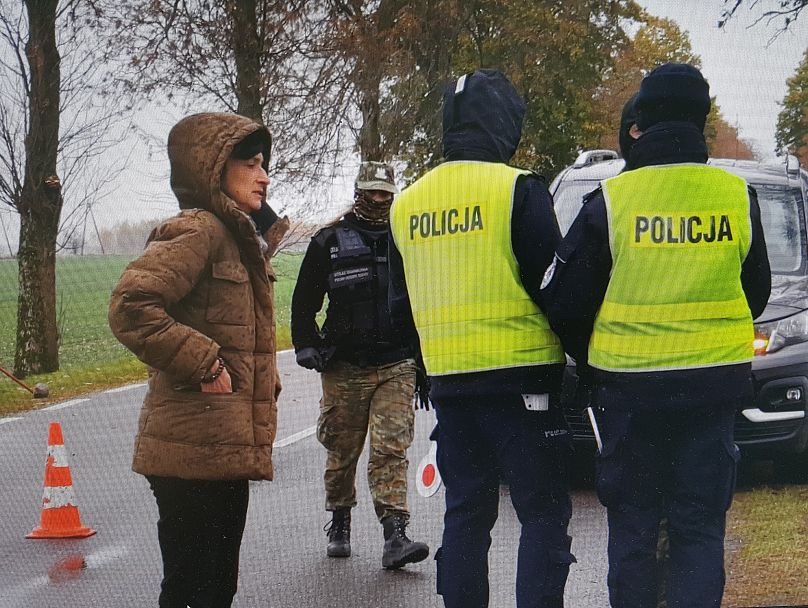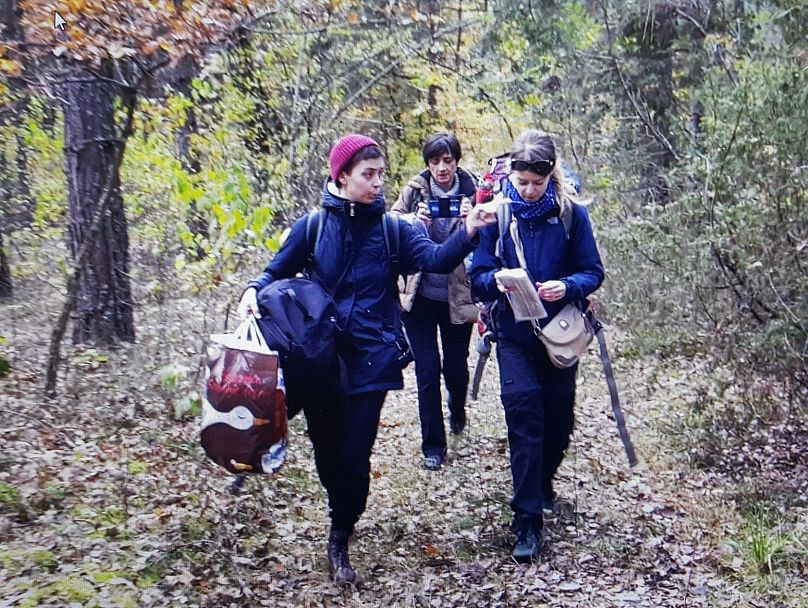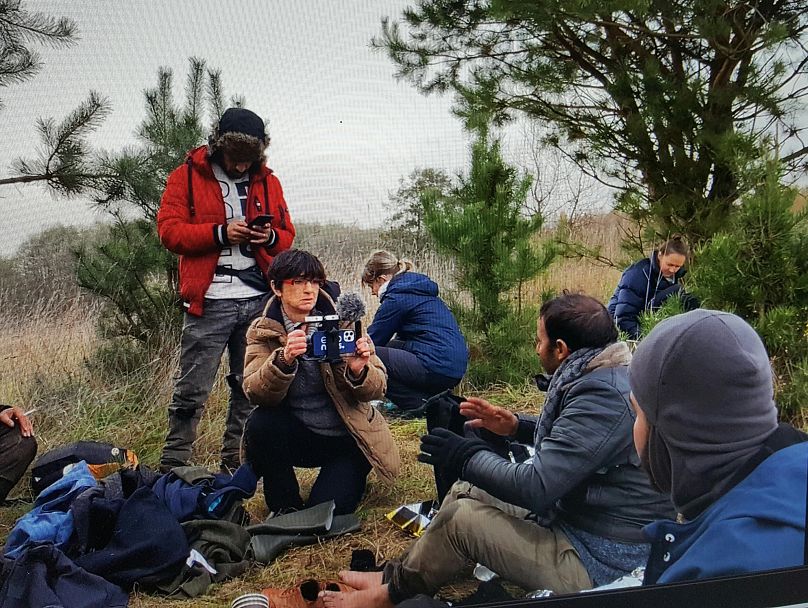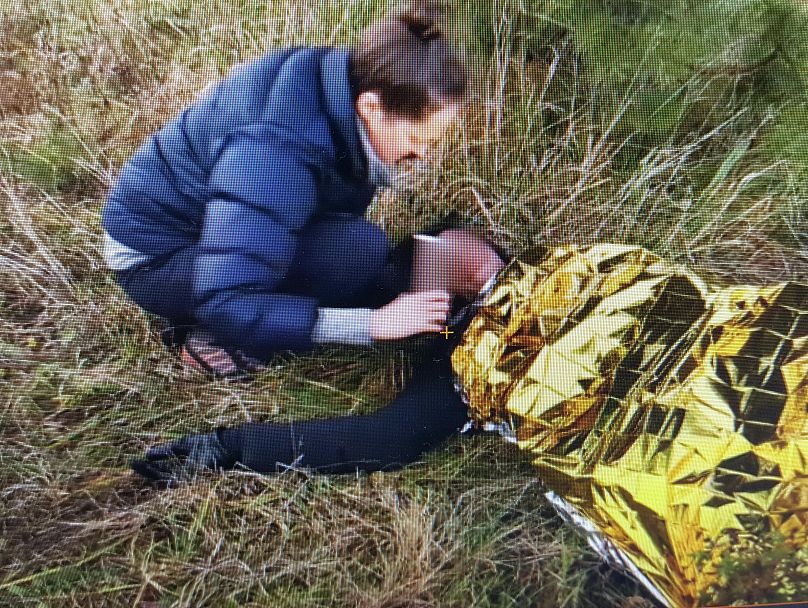Caught in the political tug-of-war between Belarus and the EU, thousands of migrants are trapped at the border between Poland and Belarus. Euronews' correspondent Valerie Gauriat witnessed their plight and the dismay of Polish local population.
After the European Union imposed sanctions on Minsk last june over serious human rights violations, a new humanitarian crisis is developing at the borders of Belarus and the EU.
 ADVERTISEMENT
ADVERTISEMENT
 ADVERTISEMENT
ADVERTISEMENT
European leaders accuse Belarusian President Aleksander Lukashenko’s government of retaliating by pushing thousands of migrants into neighbouring eastern European countries, which in response have sealed their borders.
A political tug of war which has turned the eastern borders of the union into a sometimes deadly trap for thousands of asylum seekers.
Euronews’ international correspondent Valerie Gauriat travelled to Poland, to witness their plight and the dismay of the local polish population.
During my years of reporting, crossing police and military checkpoints when in conflict zones and authoritarian states has –sadly- been a familiar sight.
But it is much more awkward when you’re working in the middle of a conflict-free European Union member state.
This is what came to my mind when reaching the Krynki checkpoint near the border with Belarus, after a long drive through Poland’s quiet agricultural landscape.
The border police are used to seeing journalists like myself and my colleague Magdalena Chodownik turn up.
They politely, but firmly, ask us to reverse and go back to where we came from.
We were at the edge of a no-go zone that runs along Poland’s 418 kilometre long border with Belarus, following Warsaw’s declared state of emergency in September.
Journalists and NGOs are banned from the sealed area. Only residents and security forces can get through.
Day and night, groups of migrants manage to make their way past the barbed wire fence that lines the border, and through the three kilometre wide exclusion zone to what they hope will be their ticket to Europe.
Many get stranded in the forest, trying to avoid border patrols who have a free rein to push them back to Belarus if they catch them.
A game of cat and mouse
We followed Natalia, Alicia and Marianna, activists in Fundacja Ocalenie – the polish word for rescue, or salvation-, a foundation that has long supported asylum seekers. They are on standby day and night to go and help migrants who send out SOS messages from their phones. So were we.
Over four days, we went with them as they attempted to find groups that had reached out to them. That meant hours of driving on bumpy forest roads, most often to no avail.
On our first attempt, a young Afghan man was too scared of being caught by border police to come out of hiding.
I was left to film the activists leaving bags of food and warm clothes in a hole in the forest, whispering to each other to avoid attracting the attention of the border patrols, and signaling the location to their invisible protégé.
At that moment, it felt very much like a game of cat and mouse. We were soon to witness a sad ending.
The young man reached out to the activists two days later, to say he wanted to meet them and ask for asylum in Poland. As we were on our way to meet him, he just had time to send a short message: he had been arrested.
We tried to find him at the closest border guard compound – in vain. Overwhelmed with sadness at the thought he could be pushed back into Belarus, the team silently drove away into the night.
They had arrived too late, having been delayed by a group of Syrian men who has just come out of the no-go zone.
They welcomed the sight of my camera, despite, or rather because of, the distress they were in. Shaking with cold, soaked and exhausted, they showed me the holes in their clothes, which they said had been torn by the dogs of the soldiers in Belarus.
One of them had fainted out of exhaustion and pain.
He was suffering from a slipped disc from sleeping rough.
On top of that, he had been bludgeoned in the back by soldiers in Belarus, who had pushed the group to the other side of the barbed wire fence.
They knew they risked being pushed back again by the Polish border police, but after seven days in the wild without food or drink, they were ready for it.
After giving them warm clothes, drink and food, and recording their request for international protection, the activists had to leave, as border guards had come to the site to interrogate them.
Two weeks have passed as I’m writing these words: Marianna and her colleagues have lost track of the group. Have they been taken to a reception centre in Poland? Have they been released by the border guards? Have they been pushed back into Belarus only to be beaten away again by the soldiers there?
We will never know. The words of Ahmed still echo in my mind: “we are just an instrument to put the pressure on!” How insightful I thought, when filming the plea of this former football player, who had left his family back in the ravaged Syrian town of Idleb.
There are hundreds like him out there, kicked back and forth like footballs, between two armed forces, trapped in a political tug of war. And many more will come.
During this sad journey in Poland, the feeling I had had when reporting in the infamous "jungle" of Calais, in northern France, creeped back on me.
It’s hard to believe that this is happening at the heart of Europe. Yet it is. What was comforting though during my trip, was to see the empathy shown by the local Polish population. They do not accept that people so close to them should be left to such a fate, and in some cases left to die. I could not help shivering when listening to the account of Maria, a local town councillor who sometimes patrols with the fire brigade to try and help out migrants stranded in the area. "They sometimes hide in the corn fields. And farmers are afraid to harvest the corn, for fear of finding dead people there”. Her husband Aleksander confesses he wakes up at night at the thought of the many children sleeping out in the cold and fear. "We can't imagine what will happen when the temperature reaches minus 0", he says. They do not hide their emotion. It's contagious.
The European Union has repeatedly expressed “concern”. Those living near the border, at the heart of the tragedy unfolding at their door, are calling for acts.














